|
Studying Musical Genre: a case-study page
The Genre Implosion Radio Show and the “Imploding Musical Genre” Thesis project were really based firmly in theory, but both used real music, real genres, real history and real ideas and observations to develop their respective cases.
This page of genreimplosion.ca is dedicated to my ongoing work in musical genre, and especially that that examines specific bodies of music that we call ‘genres’, or at least treat as though they were.
One Froggy Evening - retrieving Tin Pan Alley in a mid-century ‘Toon
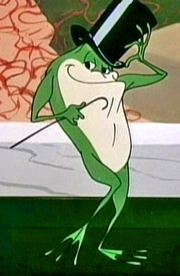 During my graduate work on Genre I developed an entirely unexpected secondary area of interest in cartoon music. Whether or not you recognise this frog, you might find the work I did on its role in a 1955 Warner Bros cartoon retrieval of the era of vaudeville and the ‘genre’ of Tin Pan Alley. During my graduate work on Genre I developed an entirely unexpected secondary area of interest in cartoon music. Whether or not you recognise this frog, you might find the work I did on its role in a 1955 Warner Bros cartoon retrieval of the era of vaudeville and the ‘genre’ of Tin Pan Alley.
With a robust song-and-dance rendition of the turn-of-the-century “coon song” “Hello Ma Baby!”, One Froggy Evening this frog jumps out of the cornerstone of the J.C. Wilbur building as it is torn down in 1955, and into the life of a middle-aged, slightly overweight construction worker who immediately sees the possibility of making millions as the promoter of a singing, dancing frog.
In a sad but elegantly comic way this dream based on nostalgia for the music and entertainment of the worker’s youth fails to come true - but provides for Warner Bros. 1955 audience a music-genre based experience of nostalgia which seems to have remained just as effective for those of us far too young to have known vaudeville or Tin Pan Alley. The cartoon’s references to vaudeville, silent film, and its unique use of music and striking lack of spoken dialogue make for an extraordinary repository of an American cultural paradigm well beyond its own extinction.
If all of this intrigues you, by all means help yourself to:
One Froggy Evening: Retrieving Tin Pan Alley in a mid-Century ‘Toon
Genre and Germanness - A musical-critical look at the North German Organ in a genrified world.
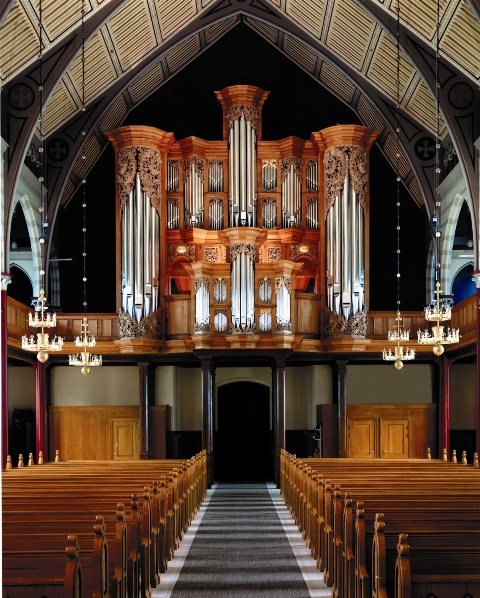 In September 2006 I had the opportunity of presenting at a Symposium in Calgary, Alberta, entitled “The North German Organ” on the occasion of the inauguration of a new historically-informed organ by Jurgen Ahrend in the Rosza Centre at the University of Calgary. With my own background as a concert organist with a keen interest in history, and the politics of musical genre still fresh in my mind from graduate work earlier that year - the whole notion of constructing a genre of organ, music, or indeed, academic symposium around “The North German Organ” seemed like a good target (oops... did I say ‘target’? I meant topic... In September 2006 I had the opportunity of presenting at a Symposium in Calgary, Alberta, entitled “The North German Organ” on the occasion of the inauguration of a new historically-informed organ by Jurgen Ahrend in the Rosza Centre at the University of Calgary. With my own background as a concert organist with a keen interest in history, and the politics of musical genre still fresh in my mind from graduate work earlier that year - the whole notion of constructing a genre of organ, music, or indeed, academic symposium around “The North German Organ” seemed like a good target (oops... did I say ‘target’? I meant topic...
Here is what I came up with: be forewarned that this is much more of a cultural expose than a formal paper, so you will find no bibliographic references: but if you have any questions I could help to answer, please don’t hesitate to contact me.
“Genre and Germanness: A music-critical look at the North German Organ in a genrified world.”
DOIN’ McLUHAN - A TRYPTYCH (2005, 2010 and 2012)
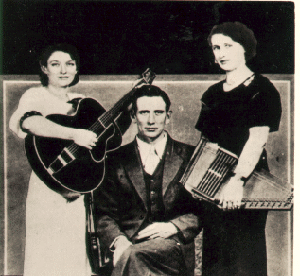 Country Music in Radio Space: Country Music in Radio Space:
Testing McLuhan’s “Laws of Media”
on a Genre’s Mediation
Country music traces its roots to the folk traditions of British immigrants, and emerged in the defeated, depressed and disadvantaged American south. But The changes that befell “rural white southern music” when the south was itself transformed by immigration, industrialization and urbanization are often attributed to the advent of records and radio, which slipped easily into a society already steeped in music.
In the 1920s country music entered radio space and, with 1930s syndication, that space and its catchment area ballooned to encompass all of urban America. Predictably, the music itself had to change with the advent of the radio Barn Dance phenomenon, and with the establishment of Nashville as its dedicated industrial centre. In this 2005 paper, prepared initially for a joint colloquium of our McMaster graduate Music Criticism program and York’s Musicology program, I try out McLuhan’s “Laws of Media” in trying to understand this music’s journey into the nostalgic urban space of the radio age, and its unexpected journey back through the early 21st century Roots revival represented in among other media icons the soundtrack to the Coen bros’ “O Brother Where art Thou?”.
Country Music in Radio Space: Testing McLuhan’s “Laws of Media” on a Genre’s mediation.
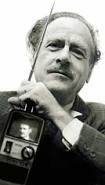 McLuhan at Mass: McLuhan at Mass:
Understanding the Organ’s place in a mediated church
Following in a sense on both “Genre and Germanness” and “Country Music in Radio Space”, in this presentation once again the Calgary Organ Symposium (2010) creates an opportunity for me to apply McLuhan to another very different musical topic than the early country music I engaged in 2005 - of course, the organ, and its place in the ‘mediated’ church of our time.
McLuhan was a devout Catholic from the day of his conversion at age 28, Tuesday March 30th 1937 until December 31st 1980, the day he died. In this talk I applied such McLuhan paradigms as “The Medium is the Massage”, “Acoustic Space” and “Hot and Cool Media” to some questions that sometimes face church congregations and musicians about music, around hymn books, projection screens, microphones and amplifiication.
McLuhan at Mass: Understanding the Organ’s place in a mediated church
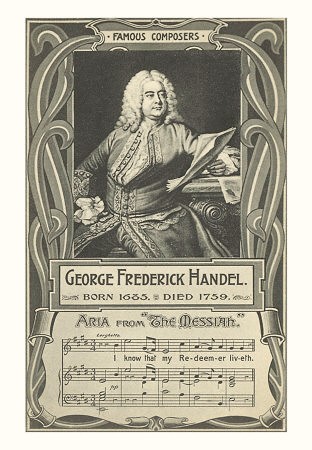 The Medium is the Messiah: The Medium is the Messiah:
A Beloved Oratorio ‘Handeled’ by George Bernard Shaw and Marshall McLuhan
An almost two decades-long musical relationship with the wonderful Guelph Chamber Choir (and its founding Director Gerald Neufeld) has in recent times offered me the honour of giving Podium Talks before mainstage performances at the beautiful River Run Centre in Guelph. The second such address I was invited to give at the River Run was for the group’s December 21st and 22nd (2012) performances of Handel’s Messiah, and because of recent work on McLuhan I returned once again to his unique thought and world view on this familiar masterwork and what it represents in the lives of both audience and musician. And the musician angle, with our unique relationship with Messiah’s ubiquity and inevitability drew me to Shaw’s famous “When a thing is funny, search it carefully for hidden truth.” See what you think.
The Medium is the Messiah: A Beloved Oratorio ‘Handeled’ by George Bernard Shaw and Marshall McLuhan
|